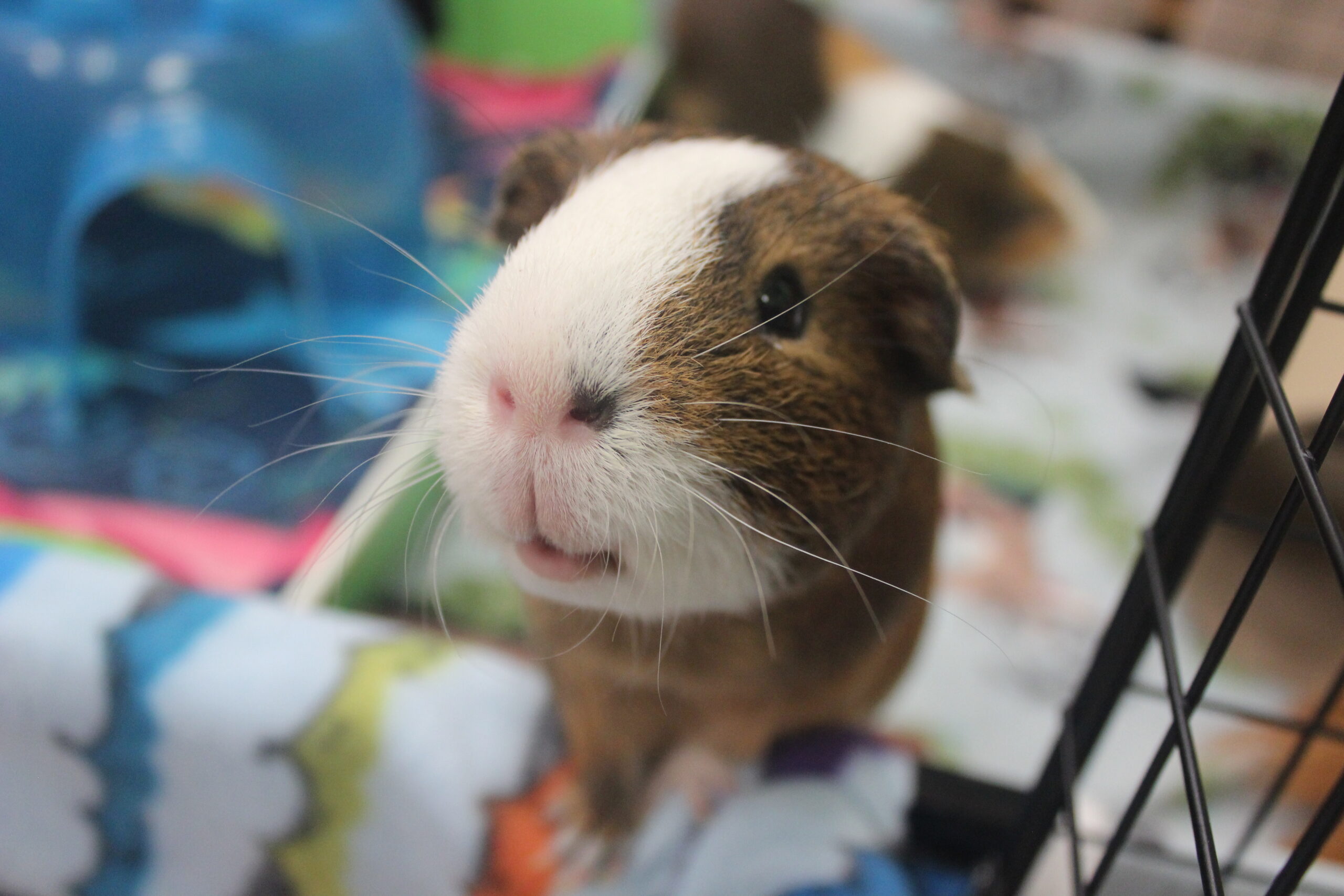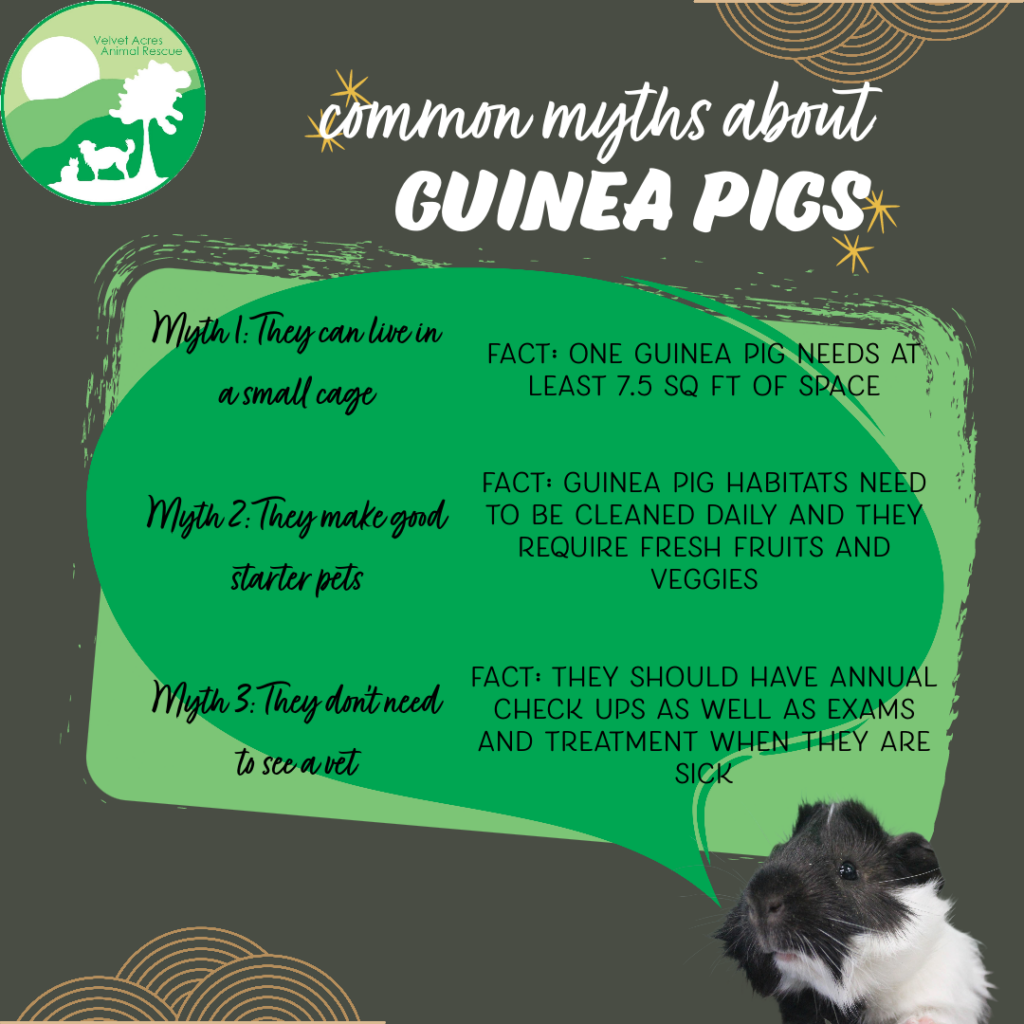
About Guinea Pigs
Did you know that guinea pigs live an average of 6-8 years?? These cute pets may seem like the perfect pet for a child but they require more care than most people realize to live their healthiest, best life.
We get so many requests to surrender guinea pigs, there is no way we can keep up with all of them or come close to taking them all in.
Why are there so many people rehoming their guinea pigs?? In many cases, they are children’s pets that are not being well cared for any longer for whatever reason- whether the child lost interest, or entered a phase of life where other responsibilities arose that were deemed more important than their pet.
In other cases, people get a pair of guinea pigs and are told that they are both the same gender, only to be surprised with babies a short time later. This is why it is so, SO IMPORTANT to have your new guinea pigs examined by a veterinarian (to confirm genders as well as check for health issues) as soon as possible if you haven’t gotten them from somewhere that already had that done.
Myths vs Facts

Myth 1: Small cages are fine for guinea pigs
Fact: One guinea pig needs at least 7.5 sq ft of space and that is the BARE MINIMUM. More space is always better. A larger habitat means more room for exercise which leads to better overall health. The more guinea pigs in a habitat, the more space required. Cages sold in pet stores are grossly inappropriate in most cases. They are simply too small, even for a baby guinea pig. See the section below on **housing** for some appropriate habitat options and ideas.
Myth 2: Guinea pigs make good “starter pets”
Fact: Guinea pigs require much more work than most people realize. Their habitat needs to be cleaned daily to remove waste and clean especially soiled areas, with a deep clean on the entire enclosure periodically. Guinea pigs also require fresh fruit a couple times a week and fresh veggies daily to make sure they are getting appropriate nutrition.
Additionally, no pet should be the sole responsibility of a child and deemed a “starter pet”. These are living creatures just like a cat or dog and should be given the same level of care and consideration as larger pets. “Starter” pets are often deemed to be shorter lived, lower obligation pets that children outgrow or grow tired of after a time or when other responsibilities start to come up. If the family is not willing to commit to the pet for it’s entire lifetime and plans to get rid of it once the child has lost interest or time for it, it is likely not the right pet for you. Consider the message sent to the child; the pet was intended to teach responsibility but as soon as it became inconvenient, it was ok to get rid of it. Not a great lesson in responsible pet ownership.
Myth 3: Guinea pigs don’t need to see a vet
Fact: Guinea pigs should have annual check-ups as well as exams and treatment when they get sick. And guinea pigs can get sick! Eye injuries can happen when they poke their eye on a sharp piece of hay. Bedding that isn’t properly cleaned or incorrect habitat flooring can lead to a painful condition called bumble foot as well as respiratory infections. Improper diet can lead to digestive issues like diarrhea which causes dehydration and can cause skin infections if not cleaned up and treated. Guinea pigs can also get fleas, mites and ringworm, all of which can be passed to other members of the family (human and four-legged).
